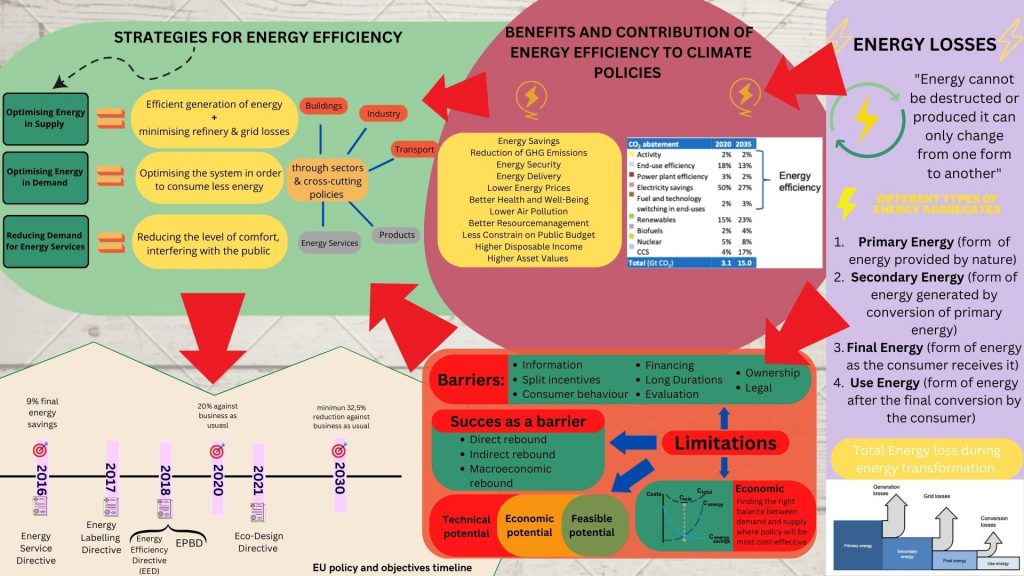
Too good to be true? Offshore wind and the European Green Deal
7 October 2022
CERI Seminar on Environment and International Relations
18 October 2022By Rémi Jégu, Joshua Beuving, Jeanne Berenguier, Viktoria Nagy
Energy Efficiency (EE) is an essential part of the European Green Deal (EGD). Ensuring energy efficiency is indispensable in order to meet the 2030 EGD targets. EE needs to be prioritised, since it is a useful way for carbon emission abatement, as in 2020 it accounted for 2.2 GT. When ‘primary energy’ is converted to ‘secondary’, ‘final’ and then ‘use energy’, a significant amount of energy is lost at each stage. EE policies are aiming at reducing the highest amount of energy losses possible during the whole energy provision process. EE strategies are designed to optimise both the supply and demand side, through policies cross-cutting sectors that are responsible for the highest energy consumption. In addition to reducing CO2 emissions, energy efficiency has several benefits, such as achieving energy security, reducing local air pollution, alleviating poverty and reducing energy prices. Not meeting the 20% target set by the EU EE Directive in 2012 for 2020, even meant a notable economic loss. However, some existing barriers restrain decision-makers to achieve EE objectives.



